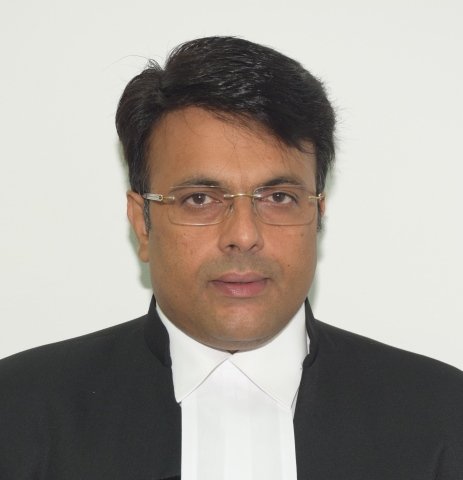High Court of Karnataka held that Article 25 of the Constitution of India in respect of the fundamental right to religion does not extend to offering prayers at each and every place, and protecting a place of worship illegally built on a public place.
The Court explained that right to construct an unauthorized temple cannot be said to be an essential religious practice to be protected under Article 25 of the Constitution.
Scope of Article 25
Chief Justice Abhay S Oka and Justice M Nagaprasanna on the bench held:
“The fundamental right under Article 25 of the Constitution of India does not extend to offering worship or prayers at each and every place. Surely, the fundamental right under Article 25 of the Constitution of India cannot be invoked for protecting an illegal structure of a temple which is on a footpath. The right to construct unauthorized temples and that also on a footpath cannot be said to be an essential part of any religion or religious practice which can be protected under Article 25 of the Constitution of India“.


A writ petition highlighting the failure of Bruhat Bengaluru Mahanagara Palike (BBMP) to demolish an unauthorized temple built on a footpath was heard by the Court.
Court’s wrath on the RWA
The writ petition by the Residents Welfare Association (RWA), seeking to protect the temple, faced the wrath of the Court.
The bench responded to the RWA:
“The duty of the citizens is to see that no illegal structure and especially, illegal religious structure comes up in their locality. But they want to protect a temple which has come up on a footpath. If the intention of the applicants was really bona fide, long back, they could have applied for relocation of the temple from the footpath. But their intention appears to be to protect the illegality. We do not think that any god or religion will support an illegal religious structure which is on a footpath. A religious structure cannot become an obstacle on a footpath which is meant for walking.”
The counsel argued that the temple was established in 1854, to this the RWA contended that the construction was not on a road or a footpath initially, but as the road was widened, it happened to be on the footpath.
The bench rejected the argument:
“As can be seen from the photographs on record, the correctness of which is not disputed, the construction appears to be a new construction right on the footpath. Even assuming that such a construction is made prior to the cut-off date 29th September 2009 fixed by the Apex Court, the construction being on the footpath can never be protected especially, when no material is placed on record to show that the construction has been made after obtaining the permission of the competent authority.”
A cost of Rs 25,000 on the members of a Residents Welfare Association was imposed by the Court.
The cost was directed to be deposited with the amount in the Chief Minister’s Covid-19 relief fund within six weeks.
The bench in regards to the authorities not taking action of demolition noted “Considering the fact that the city is under lockdown, we are not passing any adverse order against BBMP as of today while we remind BBMP of its legal obligations.”
The matter will now be heard on July 30

